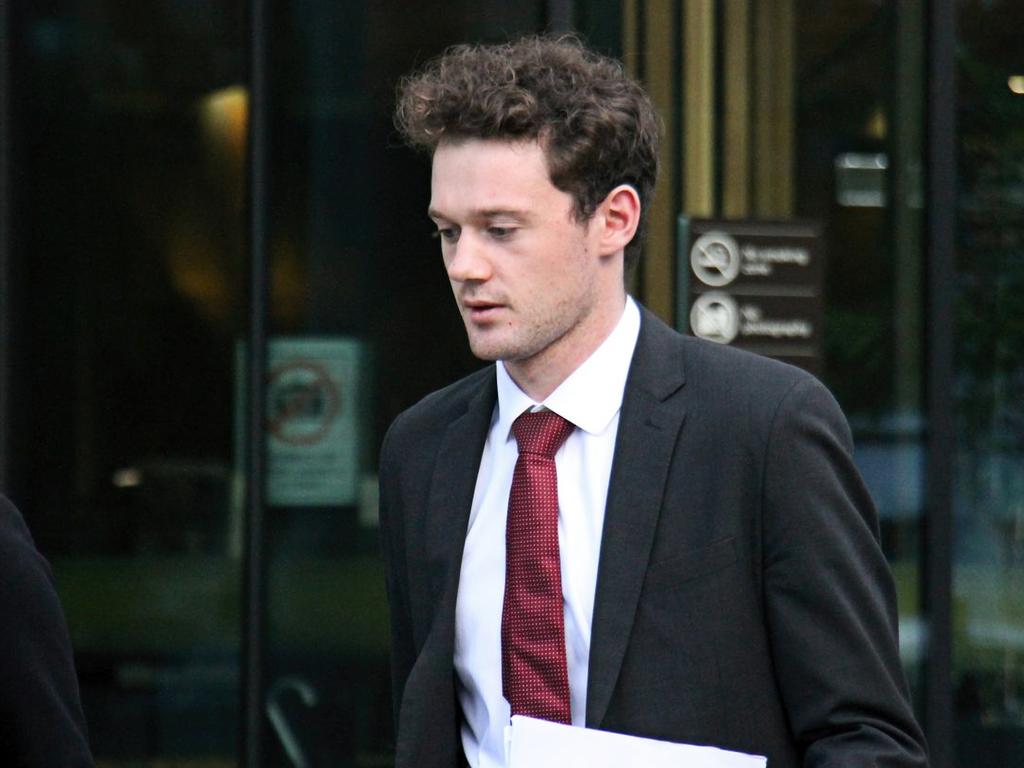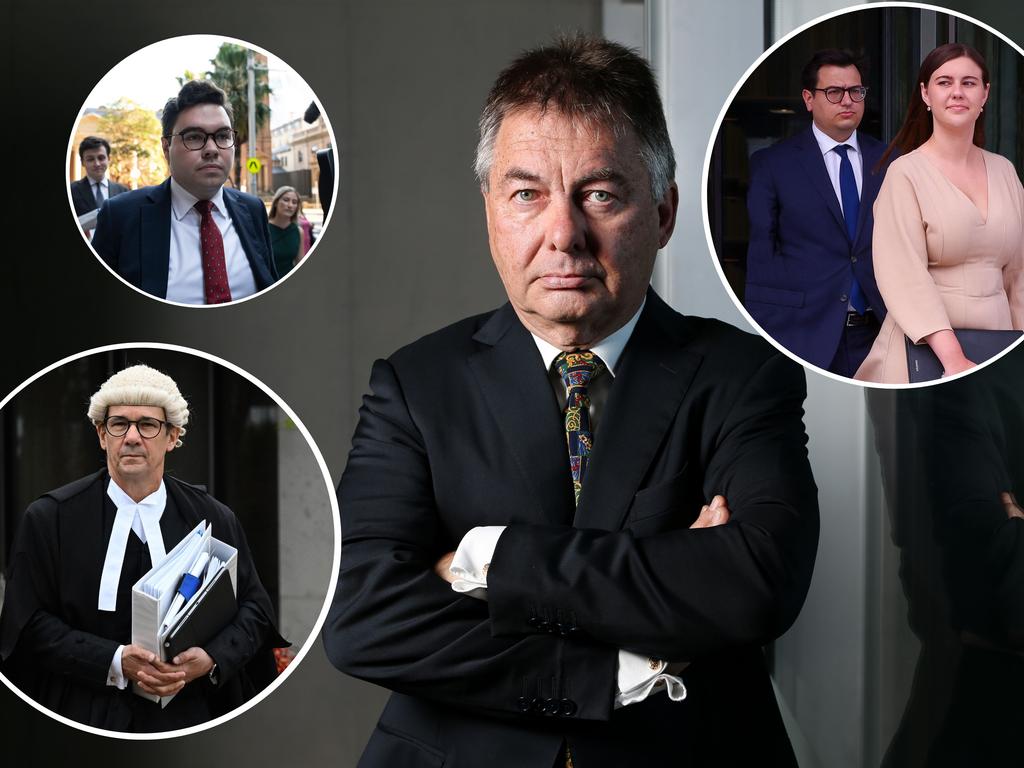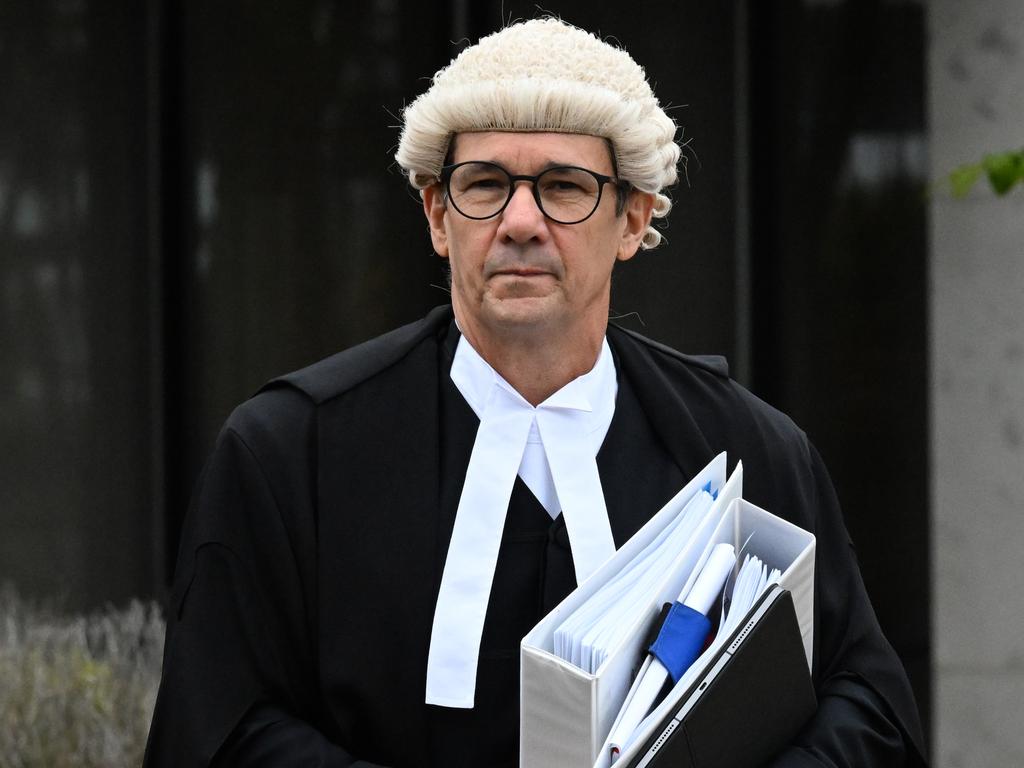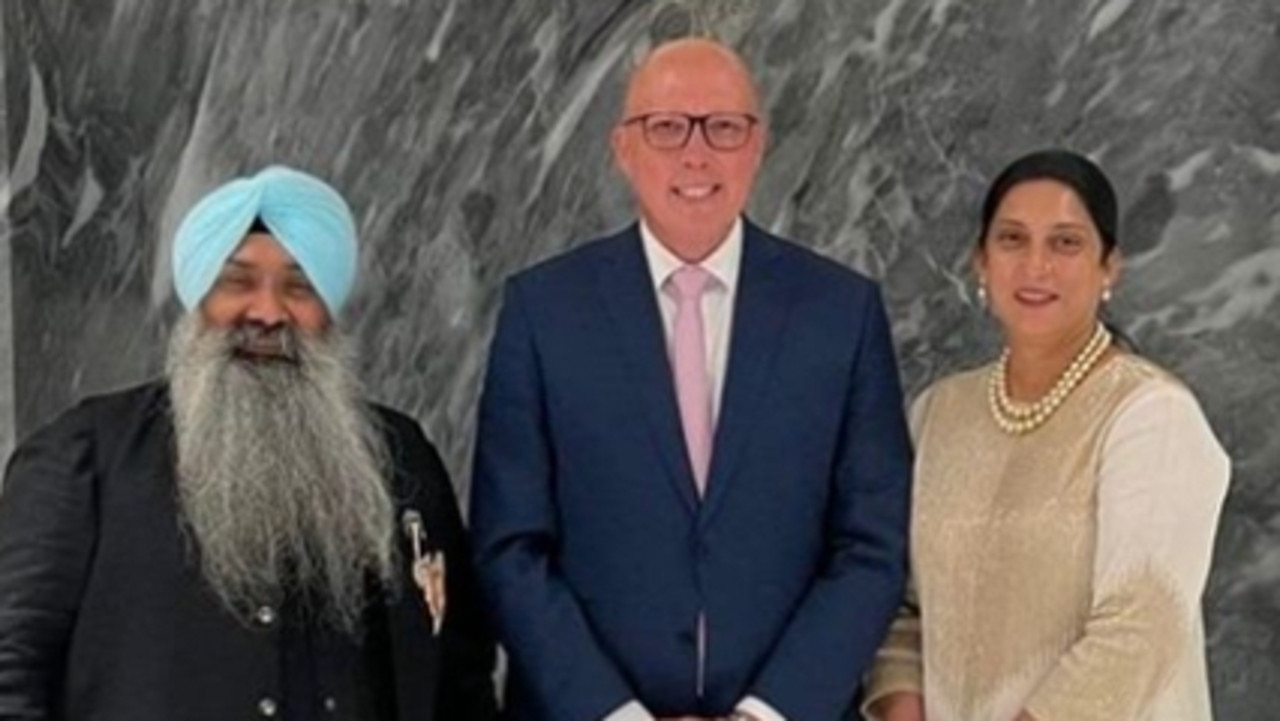Police careers destroyed by ACT DPP Shane Drumgold’s false claims
Police who investigated Brittany Higgins’ rape claims have lost their jobs or gone on sick leave never to return in the wake of baseless accusations by ACT chief prosecutor Shane Drumgold.
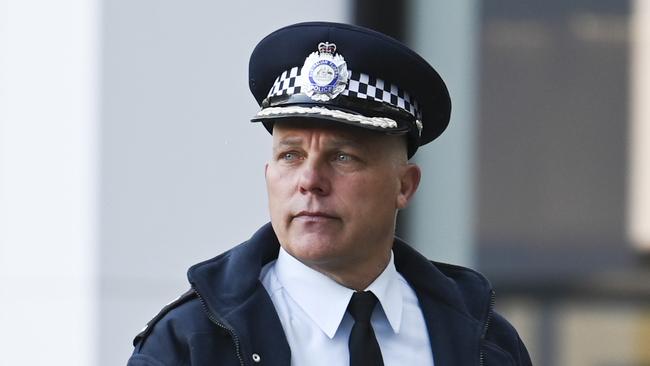
Many senior and junior police involved in the investigation of Brittany Higgins’s rape claims have lost their jobs or gone on long-term sick leave and will never return to policing in the wake of baseless accusations against them by ACT chief prosecutor Shane Drumgold.
Thirteen Australian Federal Police officers involved in the investigation of the claims, including Detective Superintendent Scott Moller, have told The Australian of catastrophic damage to their lives and careers from the inquiry he demanded.
“It must not be understated exactly what harm these baseless allegations have caused to individual police officers,” said lawyer Calvin Gnech, on behalf of his clients. “Careers have been lost and reputations severely damaged, all of which was entirely unnecessary.”
The Sofronoff inquiry found that although mistakes were made by police, none had engaged in misconduct and investigators “performed their duties in absolute good faith, with great determination although faced with obstacles, and put together a sound case”.
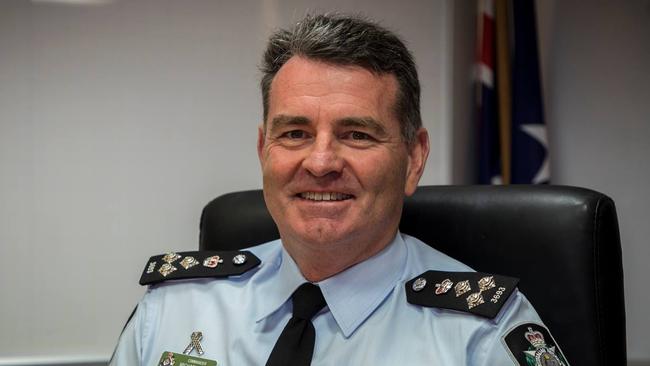
The Australian understands there may be claims for compensation made by police arising from the psychological impact on them from the investigation and inquiry.
Mr Gnech said the 13 officers he represented, who include Detective Inspector Marcus Boorman and Commander Michael Chew, had never claimed to be perfect “but they certainly claimed to have conducted a comprehensive investigation without any element of corruption or conspiracy. Senior and junior police officers have accessed long-term sick leave directly because of this matter.”
Mr Gnech added: “Highly experienced career police officers involved in this matter are likely never going to return to policing directly because of this matter and there are also young aspiring officers who have now transferred out of sex crimes never to return.
“There has been further unmeasurable personal and professional detriment caused which will never be undone and which, again, was all entirely unnecessary and needless.”
The ACT Bar Association said on Tuesday that Mr Drumgold’s certificate to practise law in the territory was valid only while he was working as DPP and would expire when he left office on September 1.
“The Bar Council notes with grave concern the findings of misconduct in the (Sofronoff) report regarding the person with primary carriage of the prosecution of Mr (Bruce) Lehrmann, Mr Shane Drumgold SC, the ACT Director of Public Prosecutions,” ACT Bar Council president Marcus Hassall said. “Those findings are patently serious and will receive careful consideration by the ACT Bar Council in the context of its role as the professional regulator of the ACT Bar.” The council said any application by Mr Drumgold for a new or unrestricted practising certificate would need the bar council’s approval.
Giving evidence to the Sofronoff inquiry, Superintendent Moller said many detectives went on stress leave because they were under so much pressure to progress the case, despite their having a professional belief that there was not enough evidence to charge Mr Lehrmann over the alleged rape of Ms Higgins.
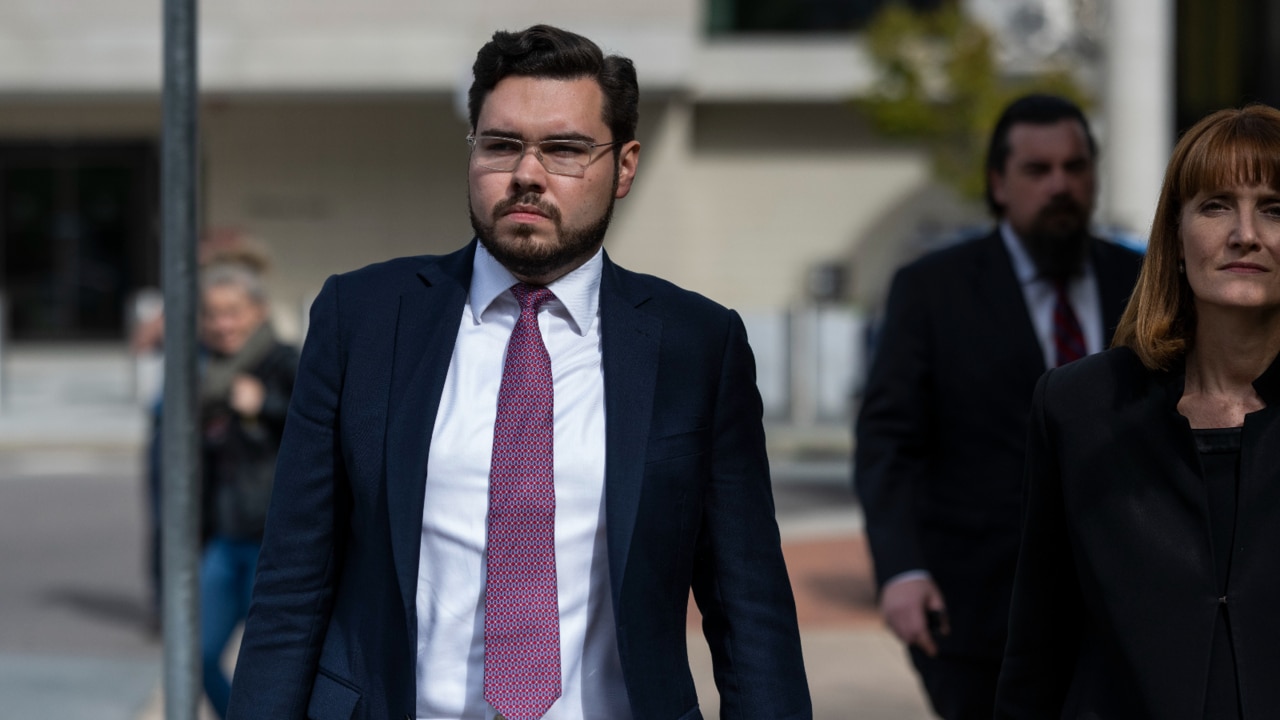
Mr Lehrmann’s defence lawyer told the inquiry Inspector Boorman had said he would quit if the former Liberal staffer was found guilty and he appeared to be experiencing a “moral trauma” at the time.
Inspector Boorman seemed “anxious and agitated” when they arranged to meet, barrister Steven Whybrow said.
He was “quite distressed” about the prosecution, and thought Mr Lehrmann was innocent, Mr Whybrow said.
It is understood Inspector Boorman’s mental health has deteriorated to the point where he is unlikely ever to return to policing and those mental health issues explain why he did not give evidence in person at the inquiry.
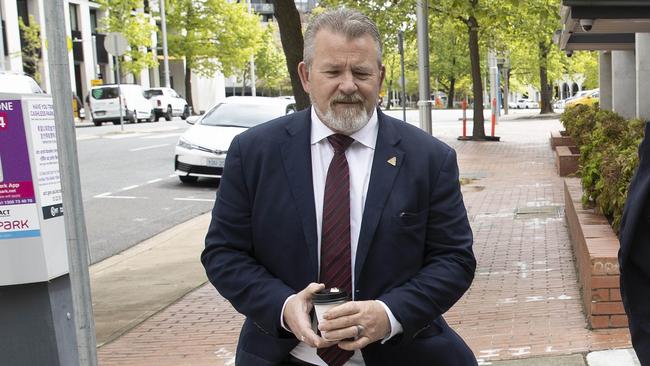
The inquiry was sparked by a letter Mr Drumgold wrote to ACT police chief Neil Gaughan alleging “clear investigator interference in the criminal justice process” in the Lehrmann case.
He said Superintendent Moller had tried to persuade him that Mr Lehrmann should not be charged and that the policeman had prepared a document that “contained blatant misrepresentations of evidence”.
Giving evidence at the inquiry, Superintendent Moller rejected the claims, revealing at one point that he was himself a sexual assault survivor.
“I lived with that for 45 years, and that has driven my desire to work with police and to work with victims.”
He said he found it offensive that Mr Drumgold had alleged police held “rape myths” and outdated stereotypes about victim behaviour that made them reluctant to charge suspects “because I’ve lived with that, and it’s difficult”.
“The team that work on sexual assault investigations are a dedicated, professional group of investigators,” he said.
Mr Drumgold denigrated the police in court during the Lehrmann trial, remarking that the quality of the police interview with Ms Higgins “is determined by the skillsets of those police officers asking the questions … which in this case was not high.”
The Sofronoff inquiry heard that during a break in the trial, Mr Drumgold had called the investigating police “boofheads”.
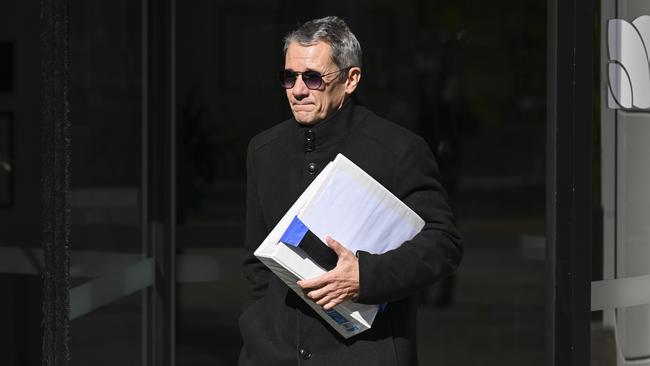
Mr Drumgold claimed that Superintendent Moller, Inspector Boorman and a number of other current and former SACAT members had been attending key parts of the trial, and “I have noted they have also been regularly conferencing with the defence team during the breaks”.
Mr Sofronoff found that Mr Drumgold “advanced nothing resembling evidence to support the serious allegations of impropriety that he levelled against the police”.
“This inquiry has thoroughly examined the allegations in Mr Drumgold’s letter. Each allegation has been exposed to be baseless. Late in giving his oral evidence, Mr Drumgold finally resiled from his scandalous allegations.
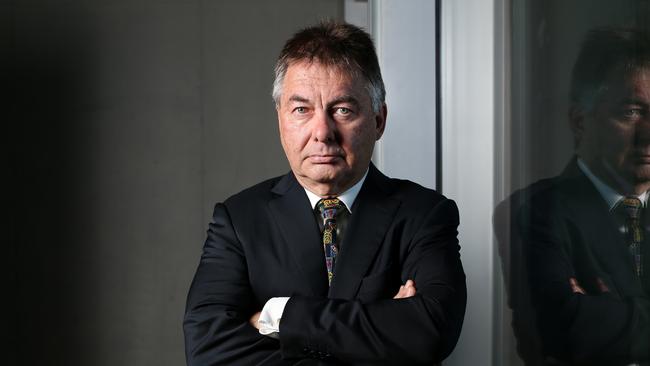
“The frankly stated opinions of police to the DPP about the weakness of the prosecution case were incapable of supporting a conclusion that they had acted in breach of their duty,” Mr Sofronoff said.
“Their association with defence during the trial was capable of demonstrating nothing more than their strong antipathy towards the DPP, something that was not surprising given that the feeling was mutual. Mr Drumgold did not seem to appreciate that mutual trust is a two-way street.
“It was he who, at the first opportunity, formed the baseless opinion that the investigators were improperly trying to thwart a prosecution.
“The allegation of political interference was particularly wicked because it was an allegation that had a tendency to lessen community confidence in the system of administration of justice and was made without the slightest evidence to support it.”

